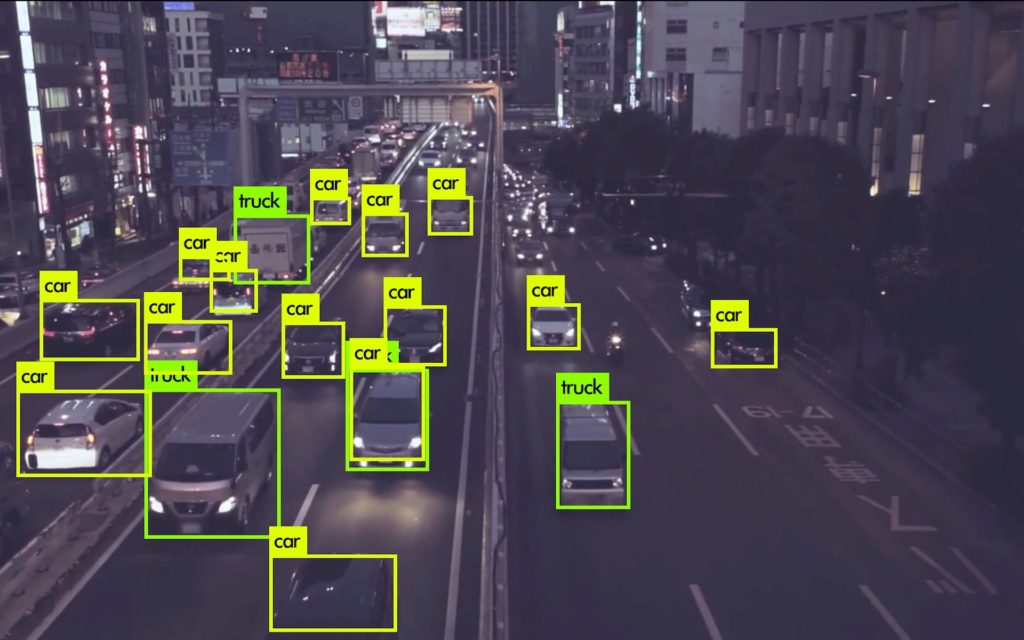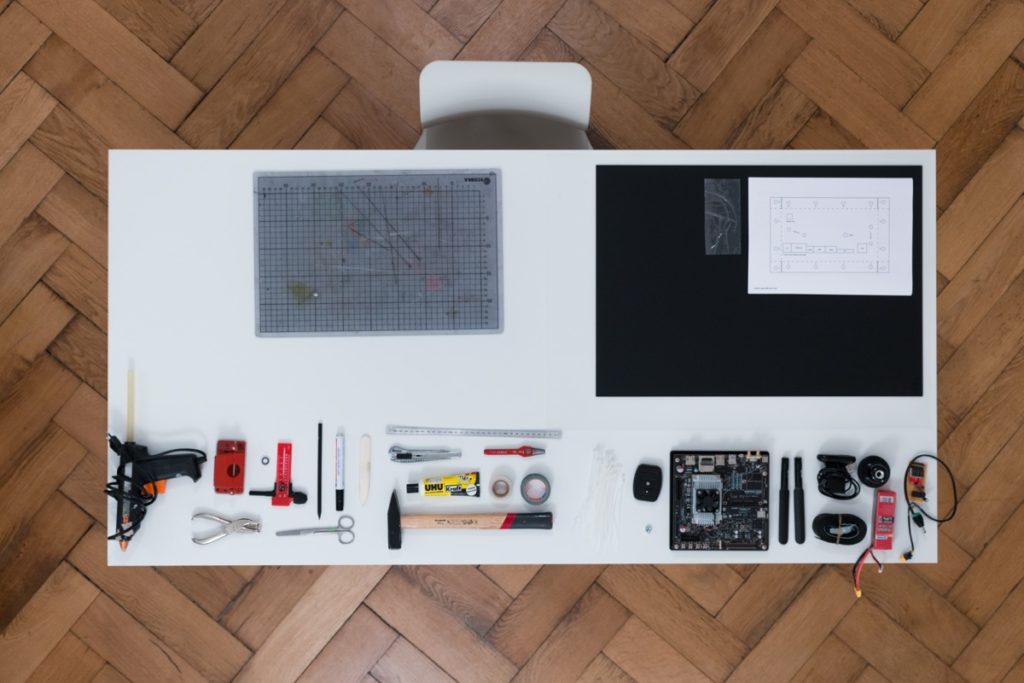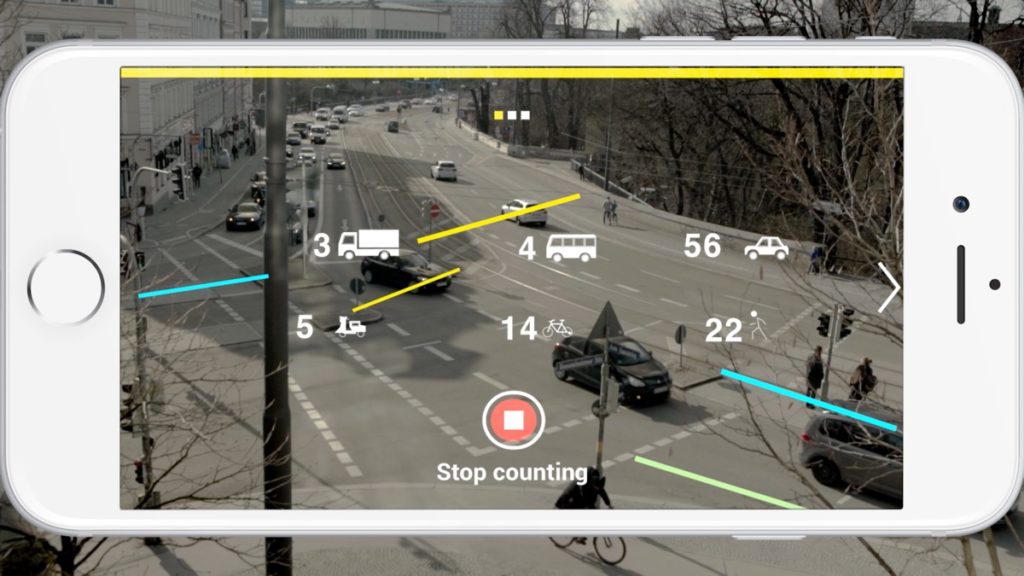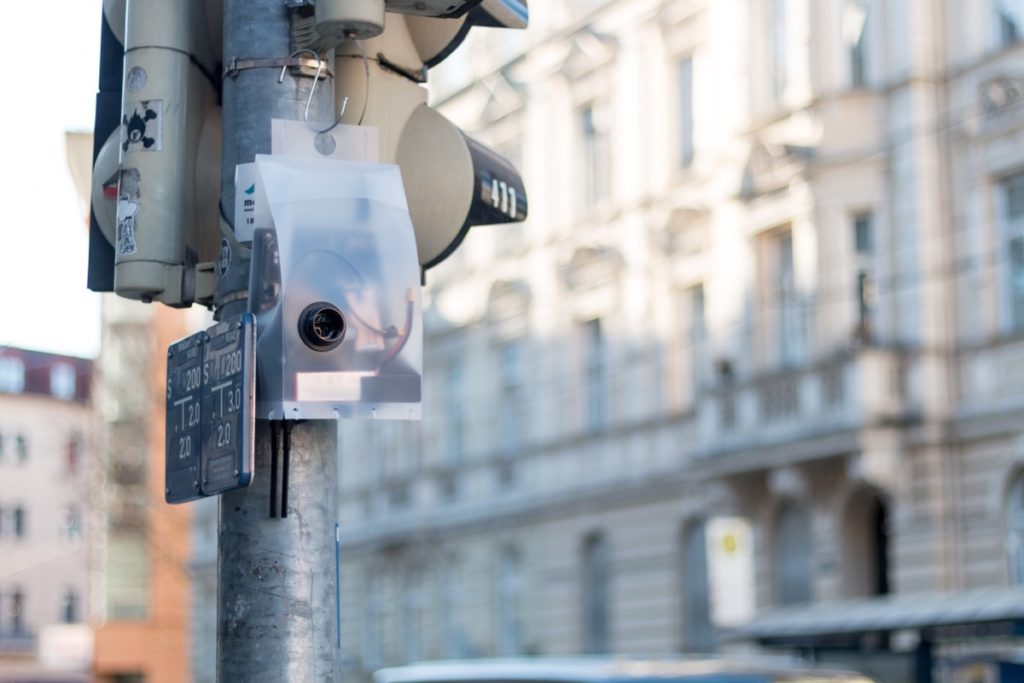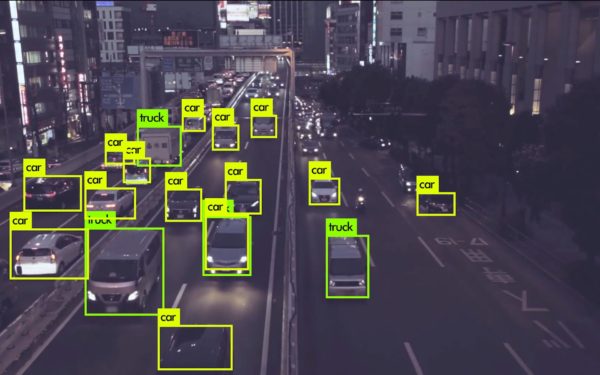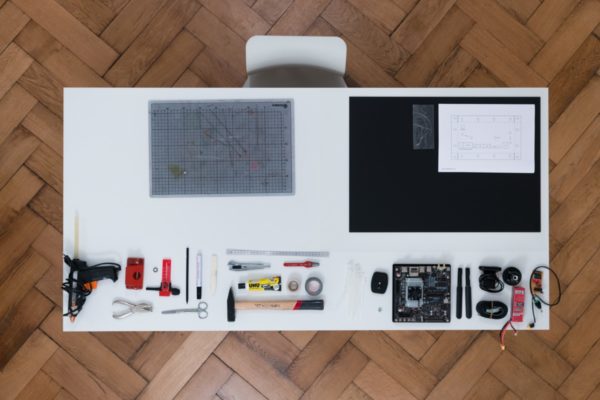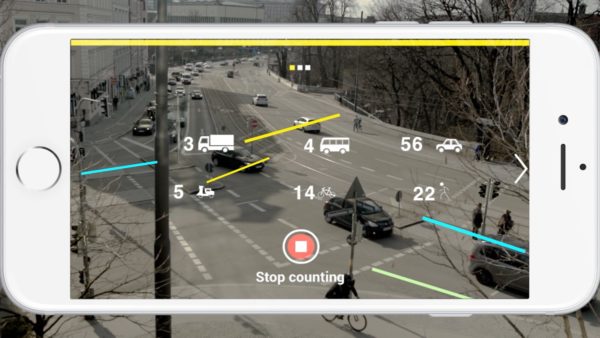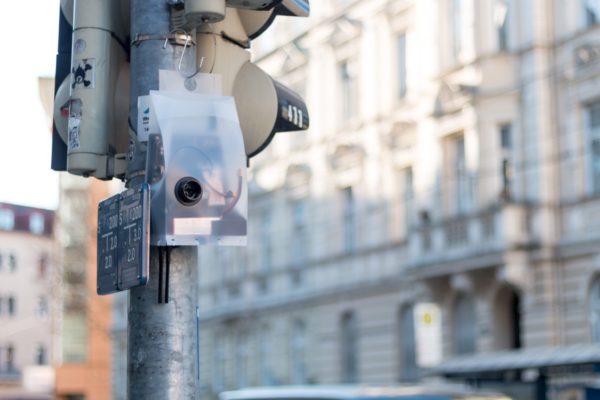You wouldn’t expect a project like this originating in a place like Stuttgart. At least I was rather surprised. Moovel lab, situated in one of Germany’s more traditional automotive cities, has launched an inspiring open source project: This time it is concerned with urban data mining, allowing people via instructions to build their own Open Data Cam to quantify the urban world around them. The Lab is part of the moovel group, a Daimler-Benz company, that offers applications for mobility as a service. With an anti-disciplinary approach to the lab and a strong focus on visualizing projections of the future, moovel lab wants to make mobility and the discussion about it more tangible. “One way of understanding smart cities is the combination of urban areas and emerging technology. ‘Open Data Cam’ can help cities (via its citizens, institutions, scientists and decision makers) to make more sense of its surroundings, by using data points created by ‘Open Data Cam'”.
The cam is detecting objects in urban settings in real-time, creating data that can be used to understand urban traffic and ideally change it to the better. The use cases that moovel lab presents are highlighting the potential of such basic tools: they have created a traffic game – or mobility wonderland as they call it – where players can turn traffic into rainbows or unicorns. Traffic counting is the obvious aim of their development. The gathered data can be used in traffic engineering. For example, for validating traffic models, learning about traffic composition by vehicle type or validating other counting methods.
However, moovel lab seems to be aware of the implications of such a tool and has developed it in the open. The initiators call out for other ideas of how to use the Open Data Cam and hopefully, the community will adopt their project and develop it further. An open source data creator for citizens seems an interesting direction in times of data as currency.
